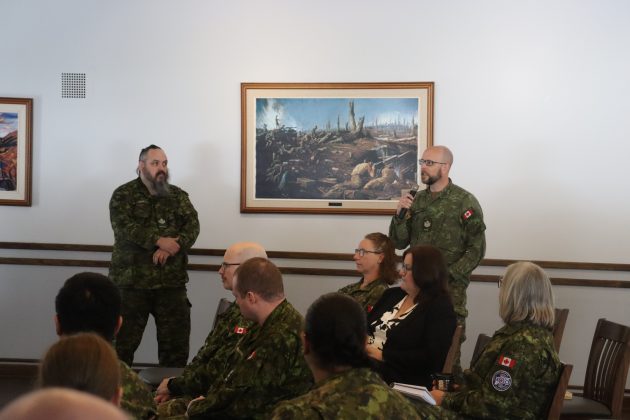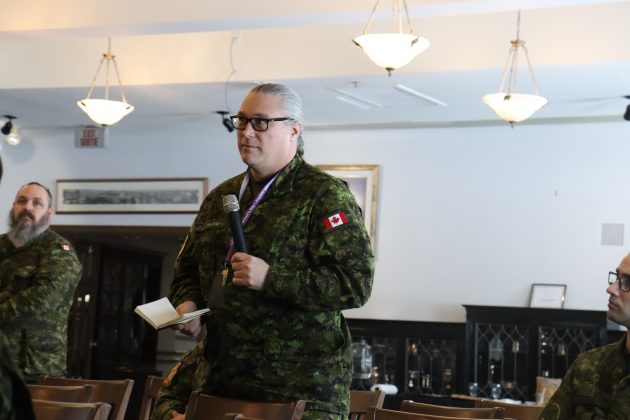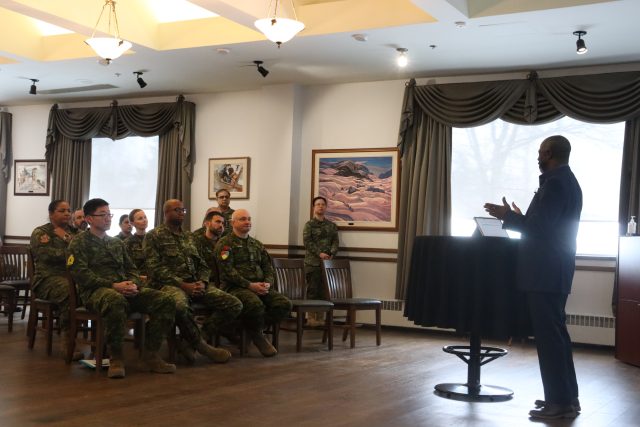
Retired RSM for the Toronto Scottish Regiment analyzes the CAF’s progression in fighting discrimination for International Day for the Elimination of Racial Discrimination
The International Day for the Elimination of Racial Discrimination (IDERD) fell on 21 March 2024 and inside CFB Borden’s Waterloo Officers Mess, the Defence Visible Minority Advisory Group (DVMAG) invited members to learn from the lived experience and witty humour of retired Chief Warrant Officer Kevin Junor, MMM, CD, the first Black Regimental Sergeant Major (RSM) for the Toronto Scottish Regiment.
Before his seminar, Junor and all attendees participated in a smudging ceremony to recognize and acknowledge the stolen land of the Mississauga of the Credit First Nations that many Ontarians live and work on and to utilize the cleansing power of sage to set the tone for the event.
Junor was consulted by the Government of Canada through the National Apology Advisory Committee to help construct an appropriate apology for the descendants of the men who fought in the No.2 Construction Battalion; the first and only all-Black battalion-sized formation in Canadian military history created on 5 July 1916.
“[The International Day for the Elimination of Racial Discrimination] is significant globally, but it is significant to those of us who wear a uniform,” Junor said.
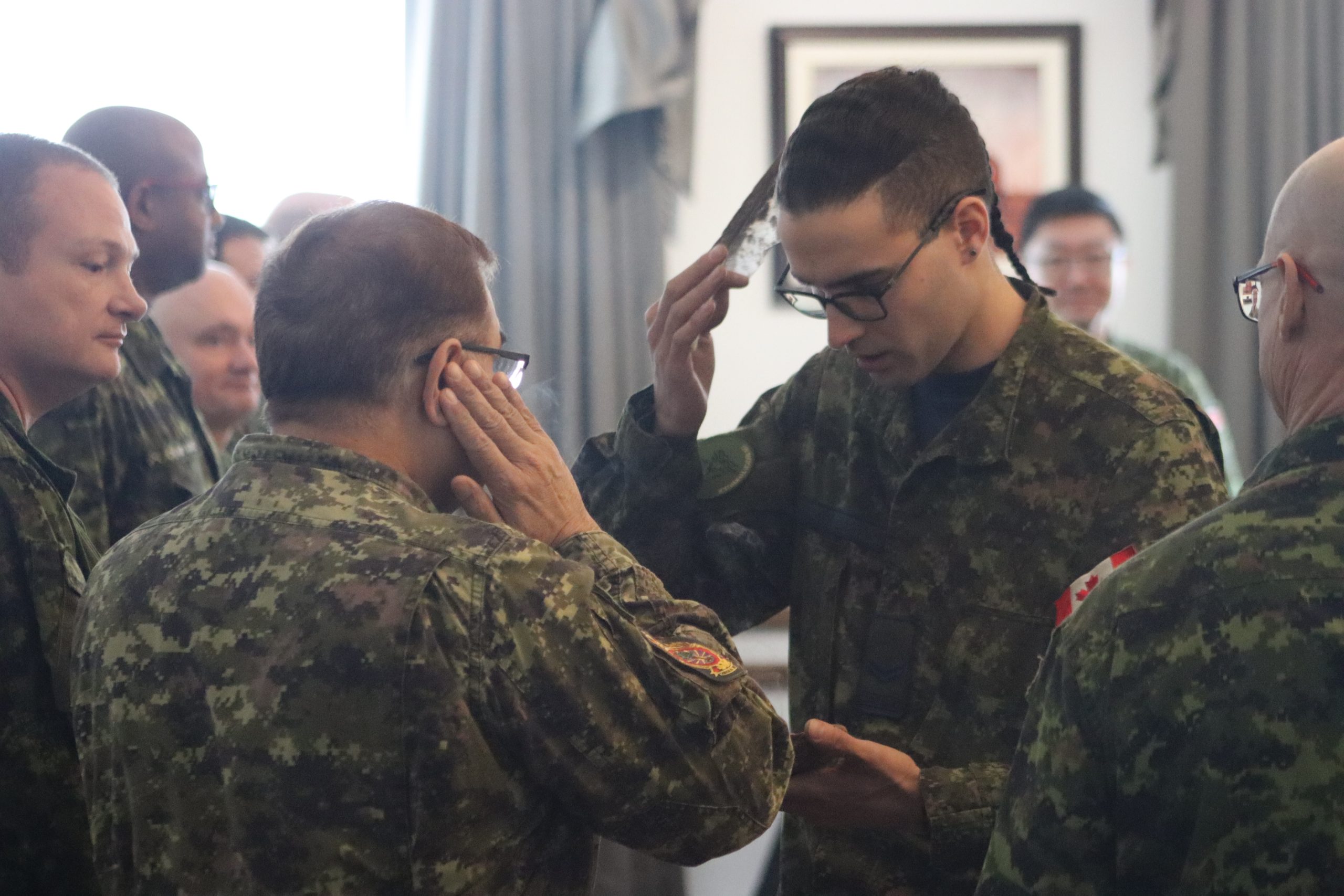
A key takeaway from the conversation was understanding the intentions of leadership, the barriers we are faced with and the destination that we strive to reach in creating an inclusive, equitable and diverse workplace. Junor compared this navigational challenge to learning how to read a map and use a compass in his first week of training.
“When things came together, I realized as an infantry soldier where the origin and destination is,” he said. “Based on the terrain, I had to take on a bunch of experience to get to my destination and use my map effectively.”
Using the Commander’s intent statement as the “destination” for fighting racial discrimination, Junor took the audience on a journey back to WWI where the No.2 Construction Battalion was first created to mark the CAF’s “origin”.
“In 1916 recruitment was difficult, but because the ‘real’ soldiers started to die, [The Canadian Government] had to take their first bearing. Their first bearing was in 1916 when they said, ‘Let us cautiously accept minorities,’” said Junor.
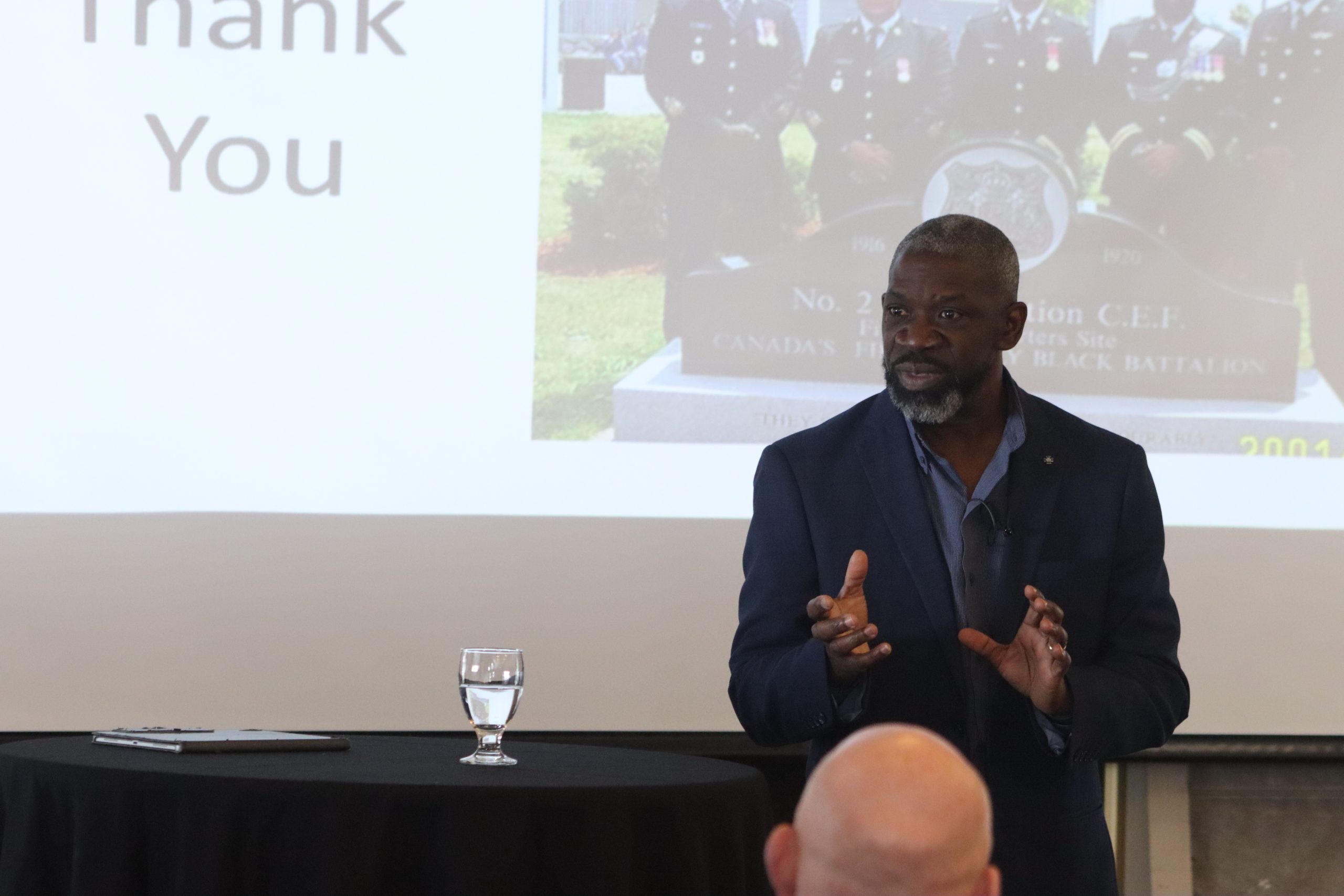
During WWI, it was “fashionable” for Canadians to serve their country, resulting in 670,000 members who fought.
As a result, about 200 Chinese Canadian men, 222 Japanese Canadian men and 4,000 Indigenous men volunteered and served.
“When Black men said they wanted to fight, they were told: ‘No, go home’… These men kept on fighting for the right to fight. They were told it was up to the Commanding Officer to accept or reject. This is where systemic racism takes over.”
Despite being an all-Black unit, the officers of the No.2 Construction Battalion were all white. The unit’s Chaplain was the only exception as he was also Black.
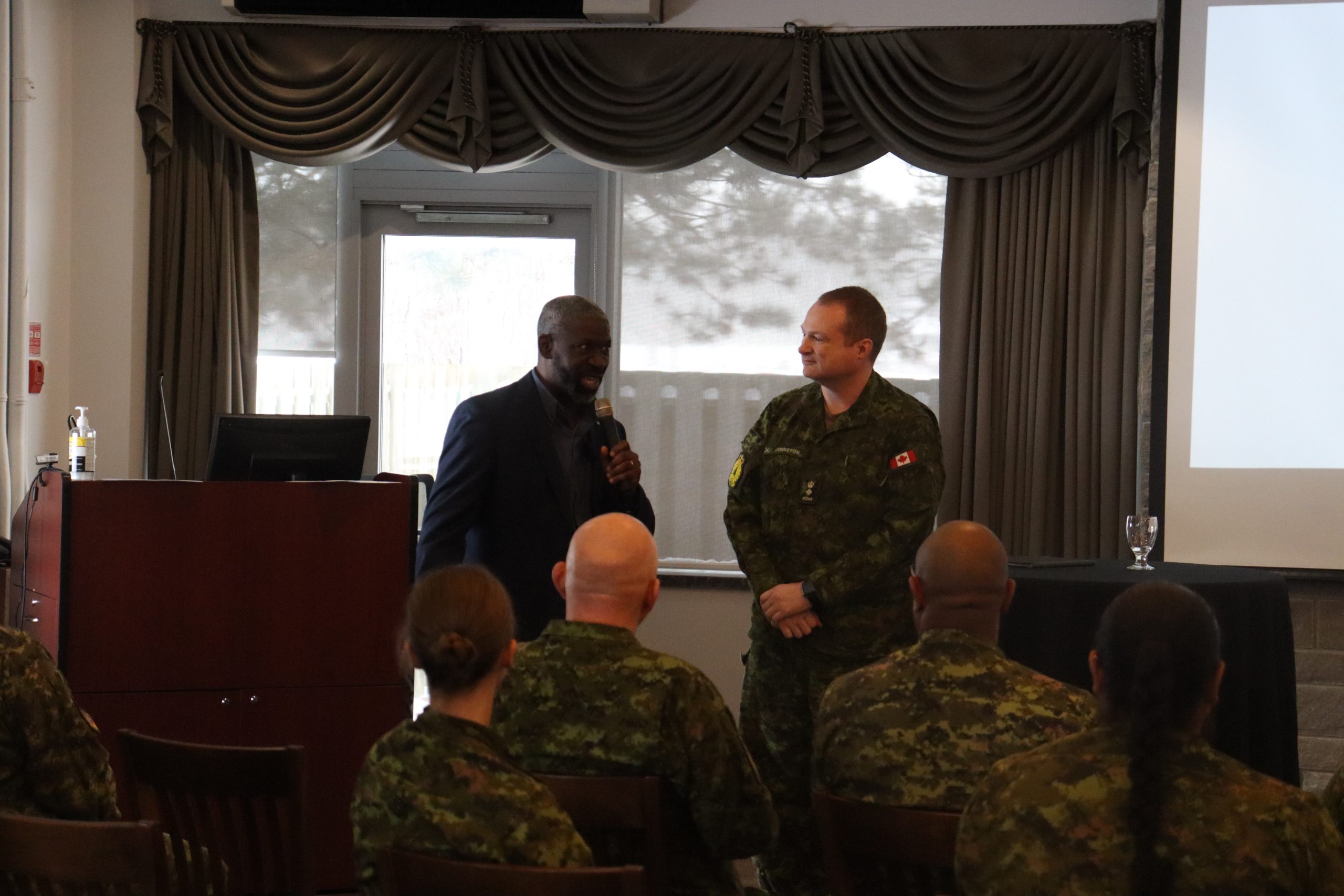
From a report written in July 1954, Junor shared a Royal Canadian Navy recruitment statement from WWII stating that: “All applicants have to belong to a white race and be British subjects who have resided in Canada for at least two years prior to application.”
To contrast the past and present, Junor provided the Commander’s intent to observe how far the CAF has come in combatting racism within its ranks. In his own experience as RSM for the Toronto Scottish Regiment, Junor recalled how he faced adversity up until he became a Sergeant and beyond.
Name calling, neglect and disrespect were just some of the challenges Junor faced at different moments of his career from recruitment offices, his superiors and even his own subordinates. Junor often found himself in the centre of many such “ethical dilemmas”.
“It is our responsibility to look out for our battle buddies,” Junor added. “It is our responsibility to take on the bearing that will take us to the Commander’s intent. It is our responsibility to also read the map; to see obstacles and navigate through them. Sometimes you need to walk through the swap to meet the Commander’s intent… Change is in this room. It’s in your heads.”
The seminar concluded with a question period where those in attendance could ask questions and spark conversation surrounding the continuous battle against racial discrimination.
Members shared their own experiences as visible minorities in the CAF, challenges with procurement and policy and holding others accountable through leadership.
“When we’re deployed, people don’t see our name tags,” Junor said. “They see the flag on our shoulder [and say], ‘That’s a Canadian!’”
By: Caleb Hooper


